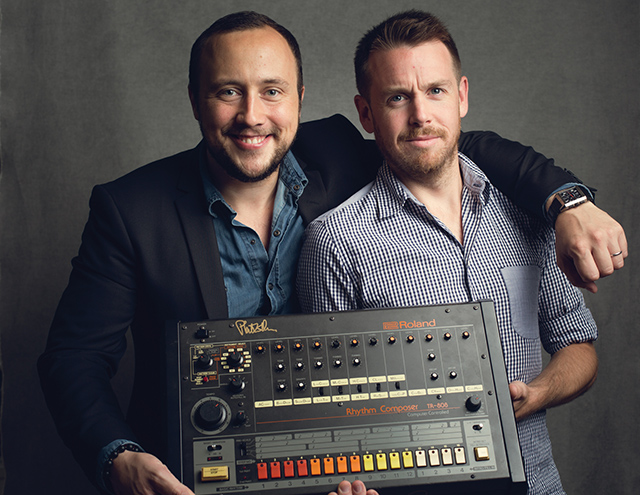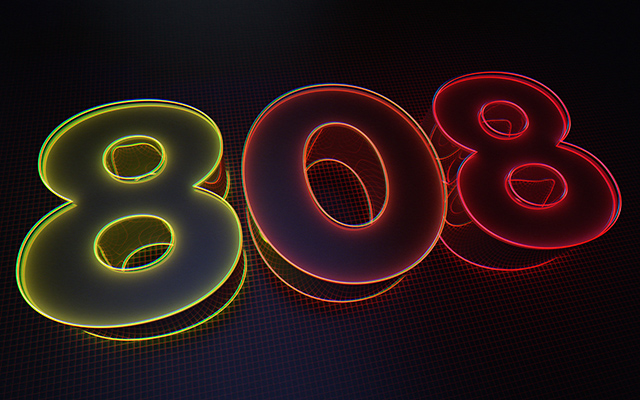
Whether you know it or not, almost every DJ in the world has been impacted by Roland’s TR-808 drum machine. Only in production from 1980-83, the unit—with its futuristic percussion and booming bass tones—remains with us in all forms of music, from the shiniest radio pop to the dirtiest dancefloor flavors.
And now, filmmakers Alexander Dunn and Alex Noyer have brought us “808,” a deliciously entertaining and deeply informative documentary chronicling the unit’s brief life and lasting legacy.
Including fascinating commentary from producers like Arthur Baker, Rick Rubin and Hank Shocklee, from artists like the Beastie Boys, Phil Collins, New Order, and 808 State, and from DJs like Armand Van Helden, Diplo, and Jellybean Benitez, the doc adeptly explains the big records and big talents that helped make the TR-808 such a legendary production piece.
We recently caught up with “808” director Alexander Dunn to discuss the film and the TR-808’s unique history.
DJ Times: Was the 808 the most successful “failure” in pro-audio history?
Dunn: The fact it just ended up being in the right places at the right times was hugely important. Its unique sound ultimately played a huge role in its enduring success, but really it was about how, fairly fortuitously, it found its way into the studios with producers that were making records that would change the course of music history.
DJ Times: Records like “Planet Rock” really put the 808 on the map.
Dunn: The sound Arthur Baker and the other musicians involved created on that record was so iconic, so game-changing for hip hop and electronic music, that people started looking into getting that sound for themselves. In the film, Rick Rubin says, “Because it was used on these great records and has such a signature sound, it lives on forever,” and I completely agree.
DJ Times: What made the 808 such an alluring production piece?
Dunn: It sounded completely unique, like something from the future, something new and different no one had heard before, certainly nothing like real drum sounds. I think that’s really important—the fact that it didn’t manage to sound like real drum sounds was a huge appeal. It defined it, gave the world a new, iconic sound.
DJ Times: Over time, the film examines how producers used the unit more for tone and bass than just beats. Quite an evolution…
Dunn: From the start, it was being used by artists that were perhaps considered more pioneering. People who were working in early electronic-music production and pushing the records, they were creating as far as they could to be different, to sound bigger. I guess that just transcended through time. Again, that’s the beauty of the 808 – its sound was so unique, it almost invited people to mess with it and create something new.
DJ Times: The 808’s history was built on that adventurism, not to mention a little serendipity—from Ad-Rock’s decision to buy an 808 instead of a Rickenbacker guitar to the inventor’s story of how he got the unit’s unique sounds.
Dunn: This is a huge part of the film and its narrative. So many times the 808 just happened to be in the right place to be used on an iconic record. It was always really important to me that this film didn’t just focus on the more techie aspects, and it would have been really easy to do that. It was so important that this was about human stories and how they are what brought the 808 to life. Without those unique human interactions, from a decision to buy an 808 rather than a guitar, the choice to call a man in an advertisement to supply a drum machine, any drum machine, to be used on “Planet Rock,” the 808 wouldn’t have led the life it has.
DJ Times: I love how the film details all the defining records of different genres—from Miami bass to MOR pop—which serve as “808 entry points” for the viewer.
Dunn: It was about working out a fluid history of the 808 and telling the human stories of how the music was created around it. Working with Arthur Baker on this was great. He had some people he really wanted to push forward, to shed some light on and he introduced us to them for the film. Like Strafe, Man Parrish, some of the guys that made records that were very influential and hits at the time, but perhaps aren’t as widely known as “Planet Rock” and “Sexual Healing,” for example.
DJ Times: These landmark records and their backstories, I think, make the film’s most compelling moments. And the diversity is amazing. It’s like, “Here’s music of your life coming from one machine.”
Dunn: The central idea was very much that, yes. I very much felt like there should be something for almost everyone in there. The 808 was definitely used on very wide, far-reaching records that straddle a lot of genres. Somewhere within the narrative of the film is a story about the music you already love and it’s framed by a lot of other amazing stories about music you might not be that familiar with—but it’s all linked together by the 808.
DJ Times: Modern dance culture—house, techno, trap, etc.—still really depends on that 808 sound, and you still hear it at the biggest festival or the grimiest backstreet. Why do you think that it has, for the most part, endured?
Dunn: Technological developments have allowed sounds made by a limited run of 12,000 odd machines to be available to anyone with the samples. An 808 beat is like nothing else and it still sounds like the future to me, even though it’s 30-plus years old.








